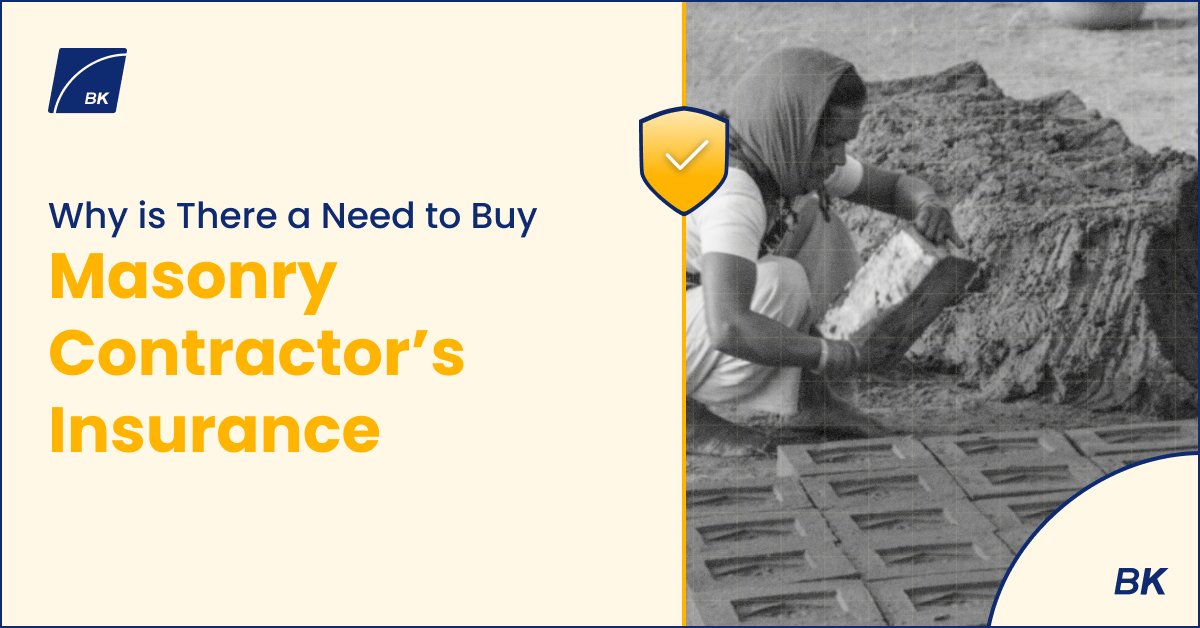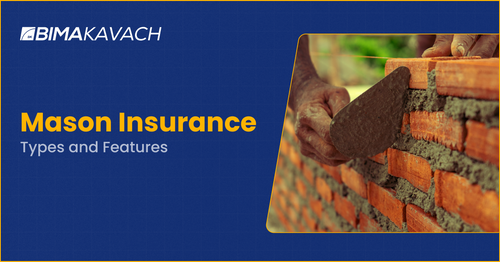As a masonry contractor, you understand the inherent risks involved in your line of work. From property damage to accidents or injuries on the job site, it is crucial to have adequate insurance coverage to protect yourself, your business, and your employees. In this article, we will delve deeper into the various types of insurance that masonry contractors need, their importance, and how much they typically cost.
Types of Insurance for Masonry Contractors:
To ensure comprehensive coverage against potential risks and liabilities, masonry contractors commonly carry several commercial insurance policies:
1. General Liability Insurance:
General liability insurance is essential for protecting your business from claims arising from property damage or bodily injury caused by your operations. This policy also covers legal expenses if you are sued because of these incidents. It includes both the public and product liability.
2. Commercial Property Insurance:
Commercial property insurance safeguards your physical assets such as equipment, tools, materials stockpiles, and even office space against perils like fire or theft. It allows you to recover financially by reimbursing repair costs or replacing damaged items.
3. Business Auto Insurance:
If you use vehicles for transportation related to your contracting activities (e.g., moving equipment), business auto insurance provides coverage in case of accidents or damages involving those vehicles. This policy protects both owned and hired/leased vehicles.
Get Free Quote in Minutes
4. Workers' Compensation Insurance:
Workers' compensation insurance is particularly important for masonry contractors because it covers medical expenses and lost wages if an employee gets injured on the job site. By providing financial support during recovery periods without facing litigation costs frequently associated with workplace injuries - workers’ comp ensures employee welfare while safeguarding employers from lawsuits.
Specialty Coverages Based on Operations:
In addition to these standard policies mentioned above specific coverages may be required based on individual circumstances:
1. Builder's Risk Coverage: If you are working on new construction projects where there may be unique exposures, such as damage to partially built structures or theft of construction materials, builder's risk coverage can protect against these risks.
2. Equipment Breakdown Coverage: This coverage protects you from financial losses resulting from the sudden breakdown of expensive equipment used in your masonry operations. It ensures that repair or replacement costs are covered promptly, minimizing downtime and loss of income.

Why there is a need to buy masonry contractor’s insurance?
The reasons masonry contractors need insurance vary from business to business, but we've seen a few common themes over the years:
Customer Requirement - A masonry contractor's main reason for purchasing insurance is to meet client requirements. Most masonry contractors work with general contractors or other companies. The clients want to make sure they won't be financially liable for any potential claims that could arise out of your work.
Licensing Requirements - Some states require masons to have a license before they can perform any work. One of those license requirements may include proof of a liability insurance policy.
Protection of Business - The livelihood of the owner and employees depends on the success of the business when it reaches a certain size or revenue level. An insurance company transfers some of the risk associated with owning a construction business to it in exchange for a monthly or annual premium. If your business suffers a catastrophic accident, you will be less likely to have to close.
How Much Does Masonry Contractor Insurance Cost?
The cost of insurance for masonry contractors varies based on several factors:
1. Location: Insurance rates can vary significantly depending on where your business is located due to differences in local laws, regulations, and risk profiles.
2. Size and Revenue: The size of your operation and annual revenue will impact insurance costs. Larger businesses with higher revenues typically pay more because they have greater exposure to potential claims.
3. Heights Climbed: If you frequently work at heights - for example, when installing chimneys or working on tall buildings - there may be additional risks involved leading to increased premiums.
4. Claims History: A history of previous claims can affect the cost of insurance as insurers consider it an indicator of future risk.
5. Experience: Contractors with years of experience tend to benefit from lower insurance costs compared to those who are relatively new in the industry since experience implies a lower likelihood for accidents or mistakes on the job site.
How Do I Get a Masonry Contractor Insurance Quote?
Speak to BimaKavach representatives for best assistance. You need to provide the necessary information about your business, including its size, revenue, location. We will provide you with a customized quote from the top insurers.
Read more about garage insurance
Read more about hotel insurance

